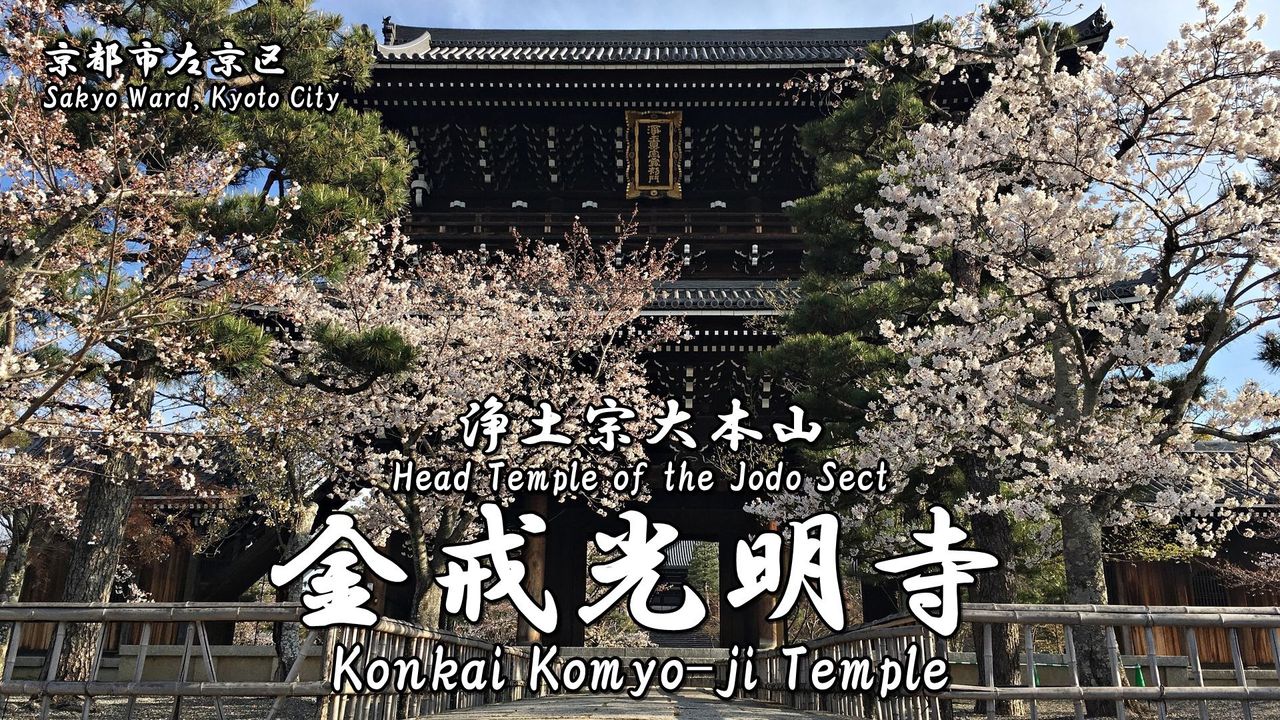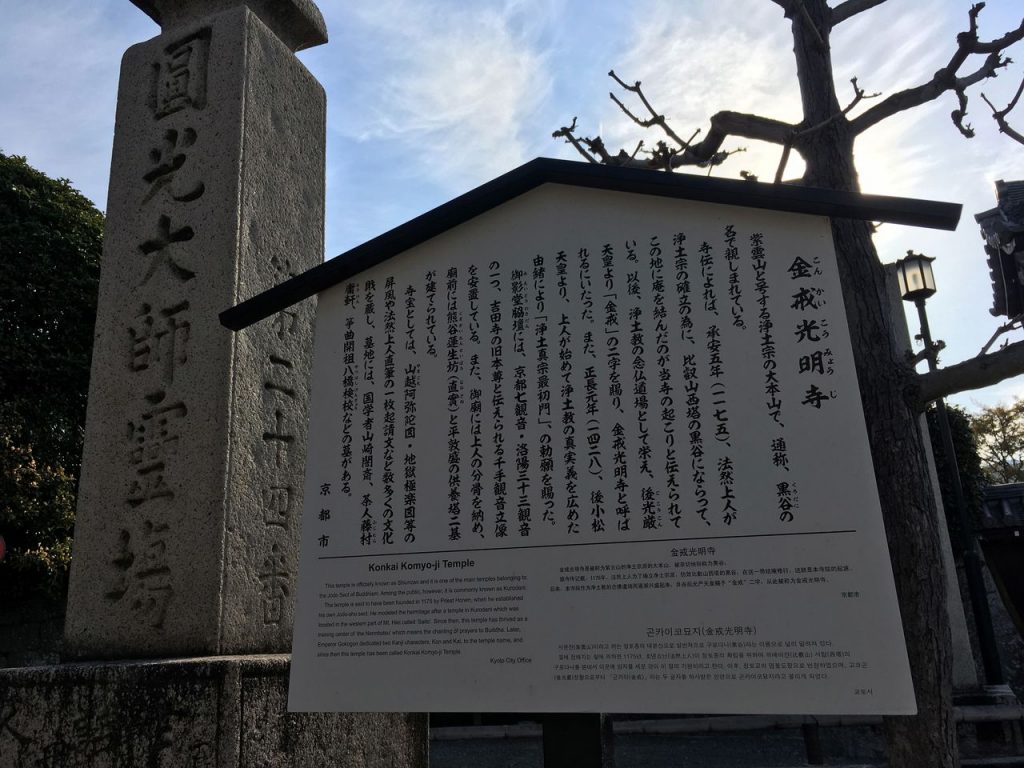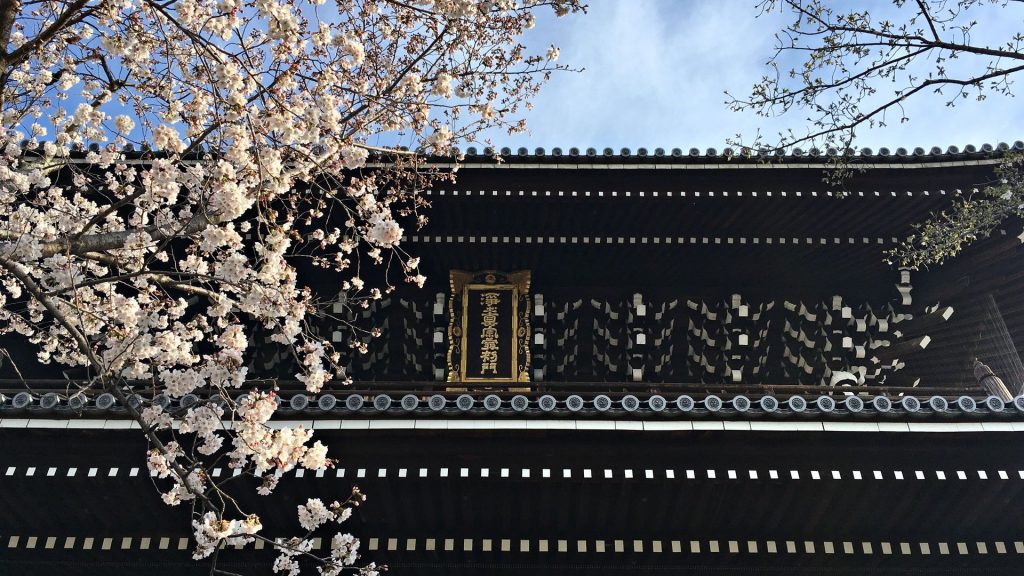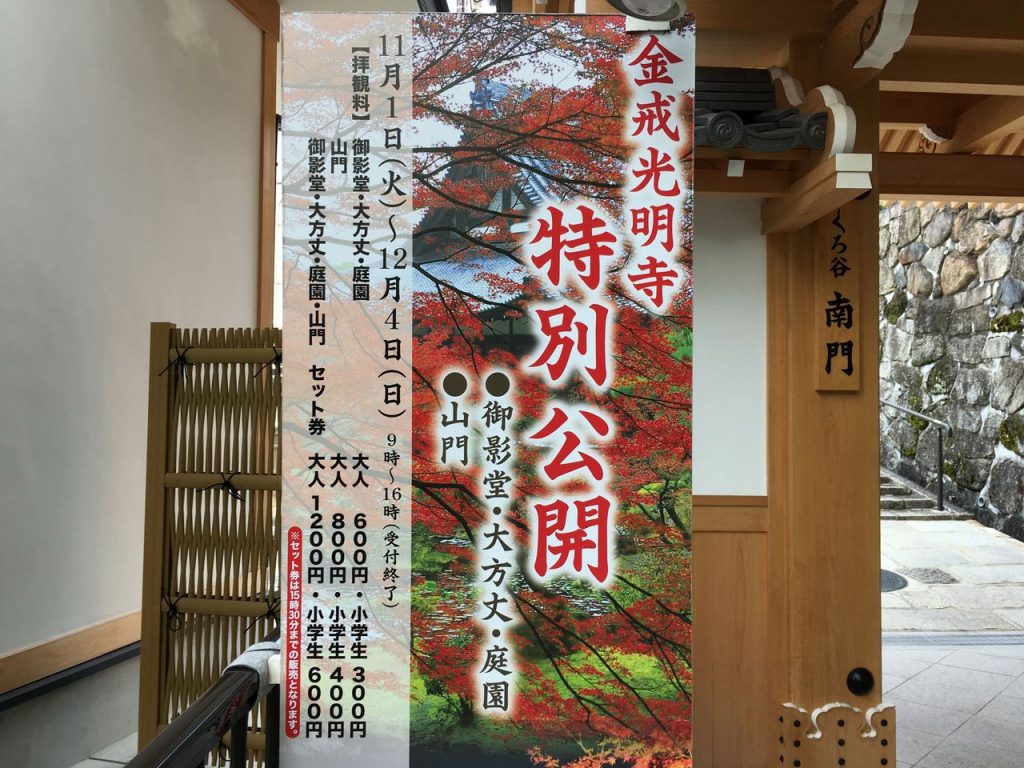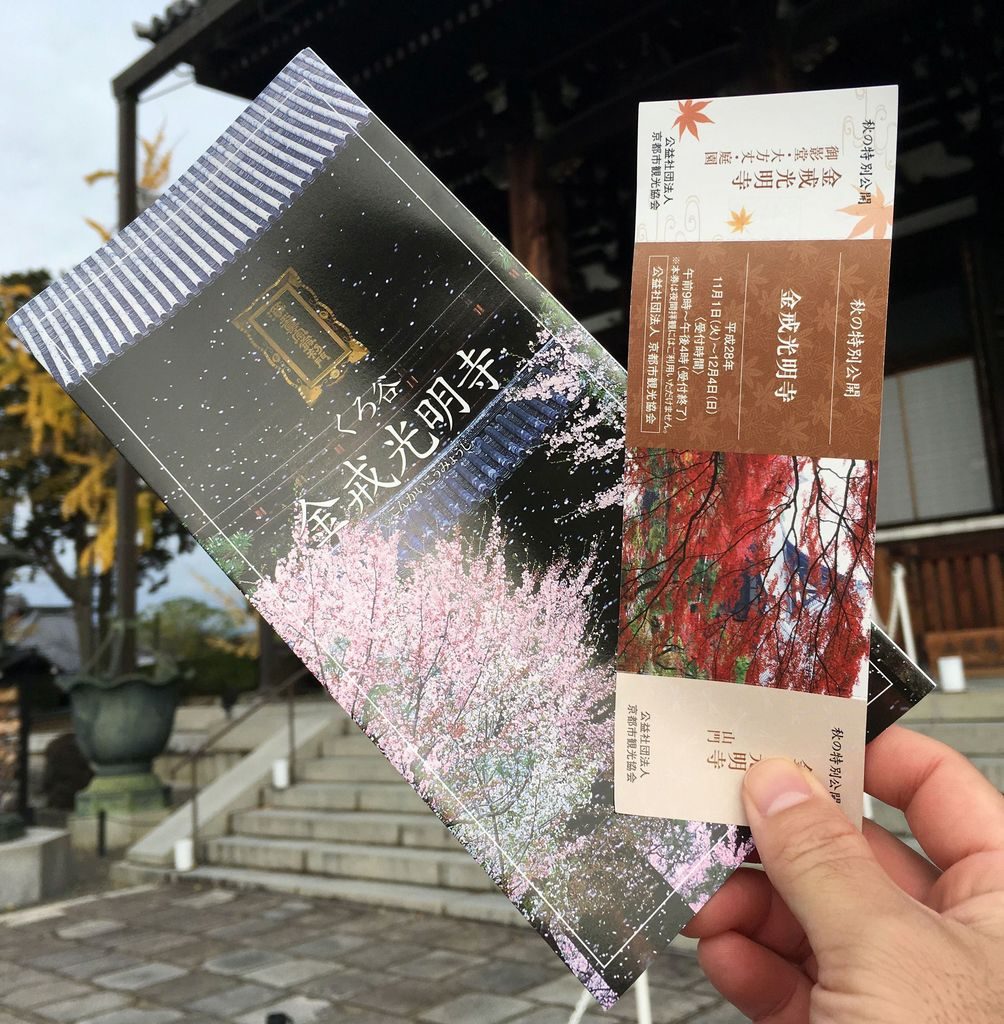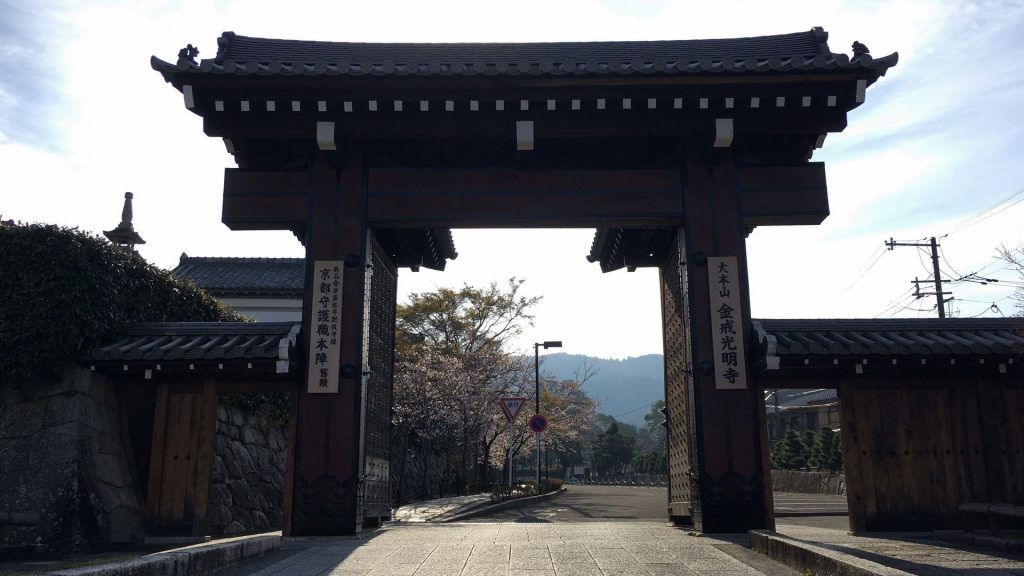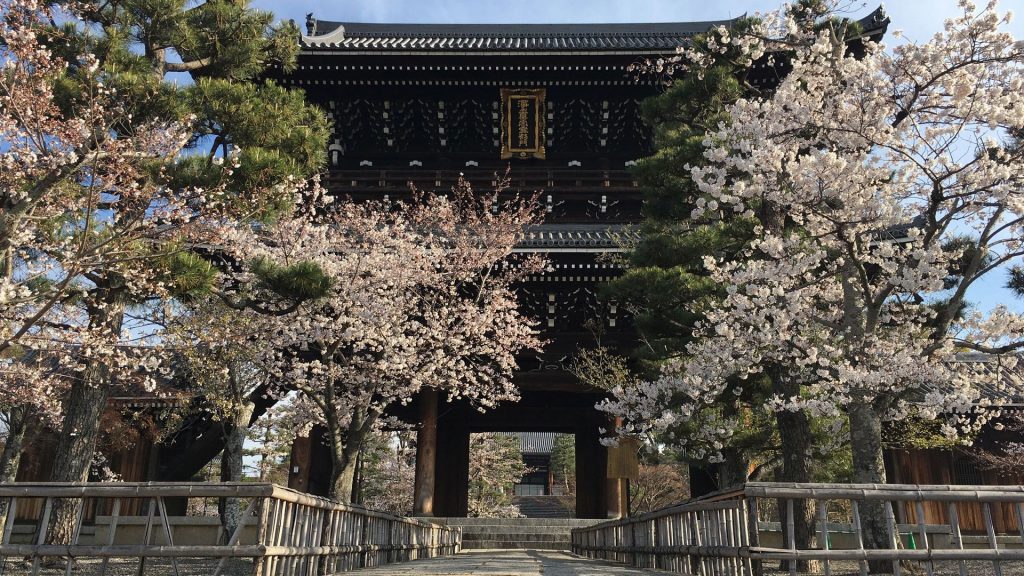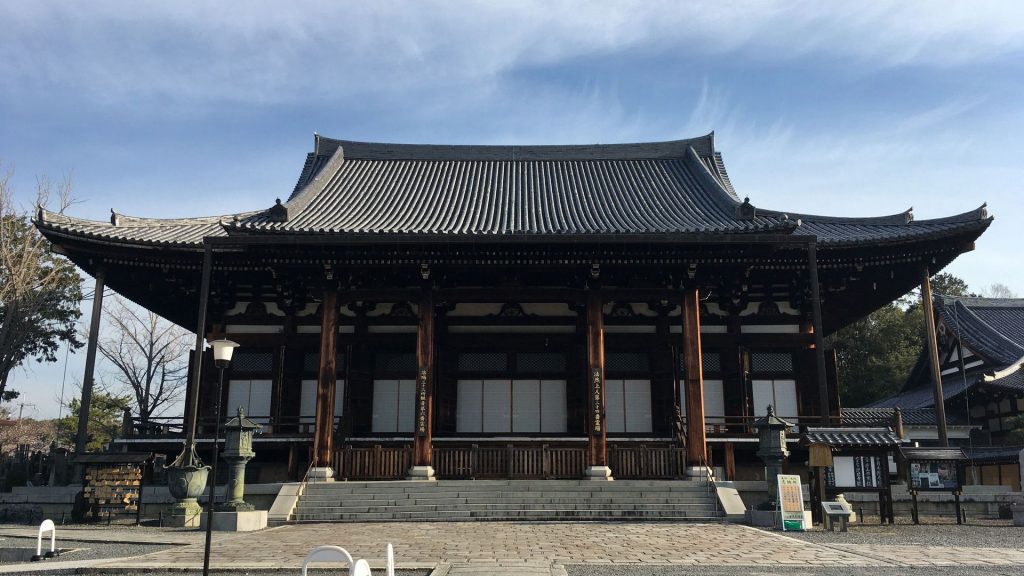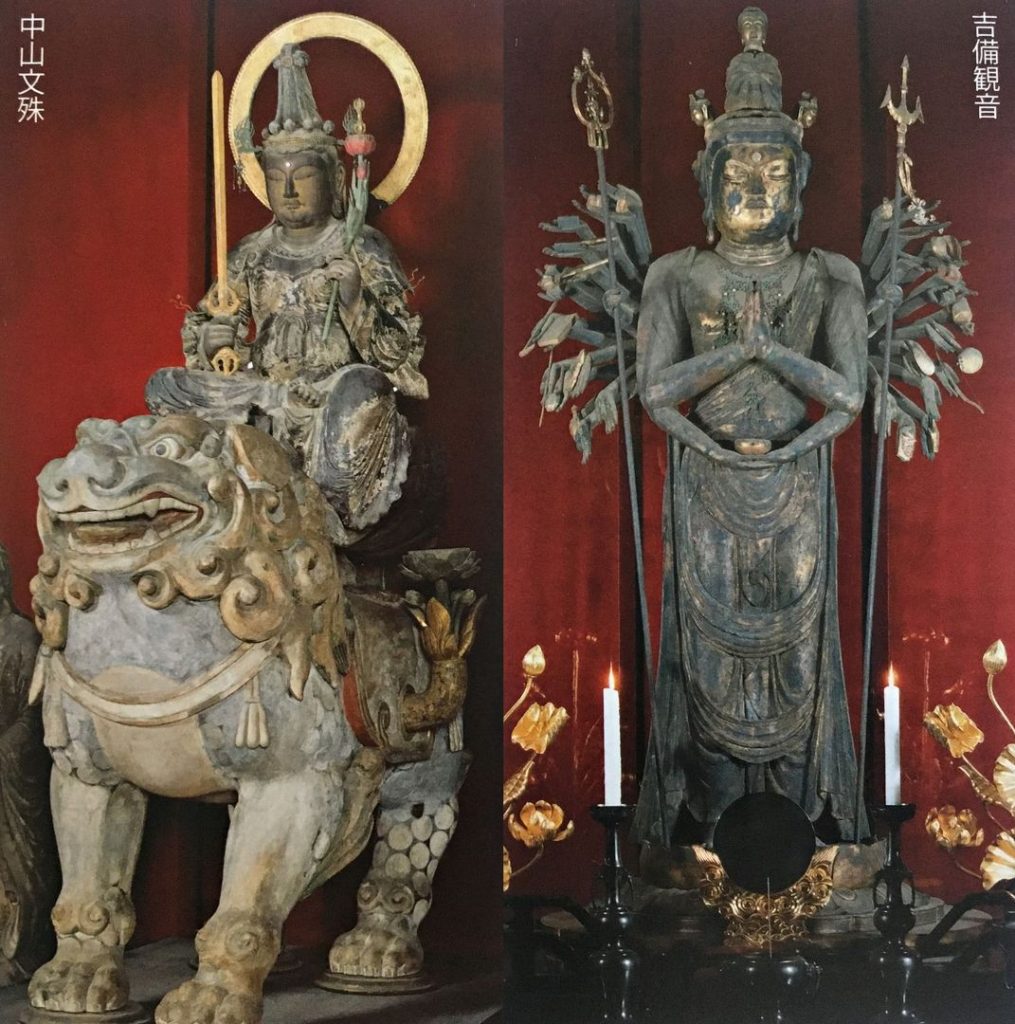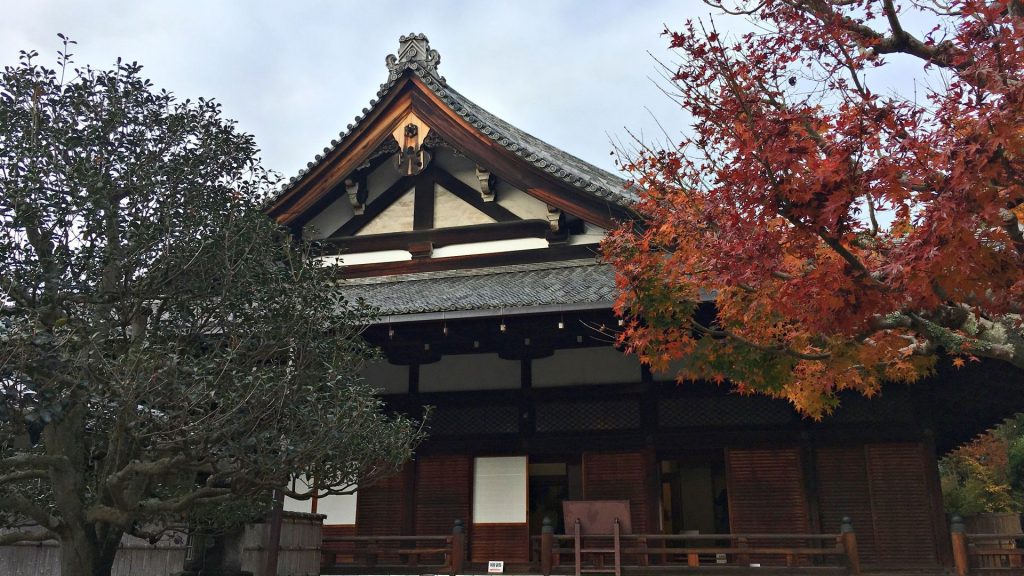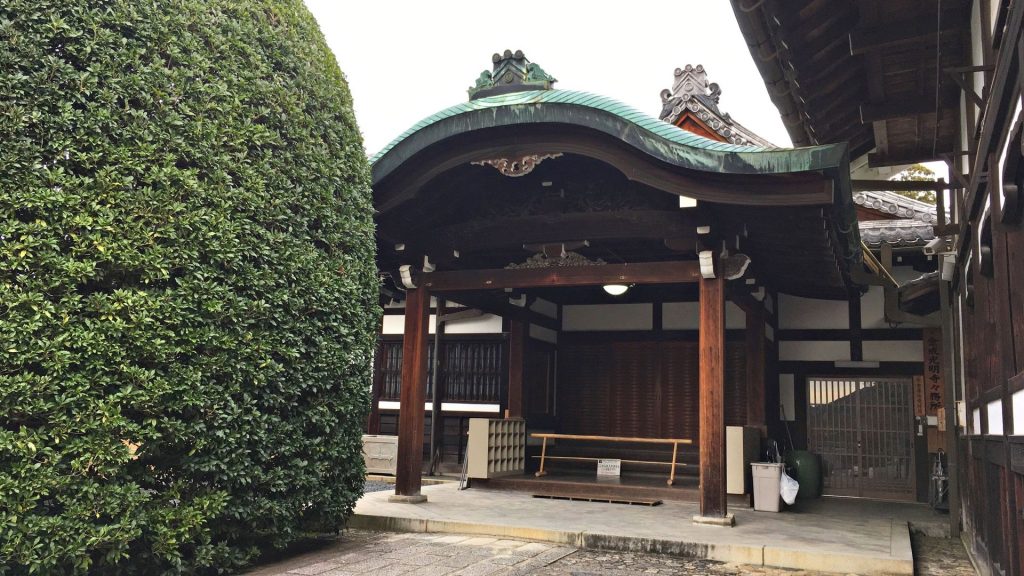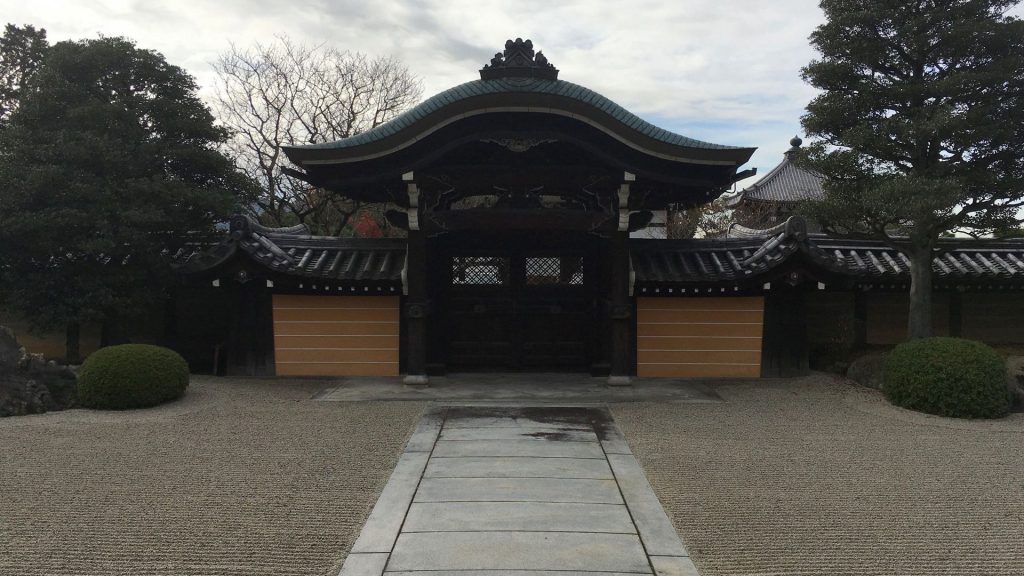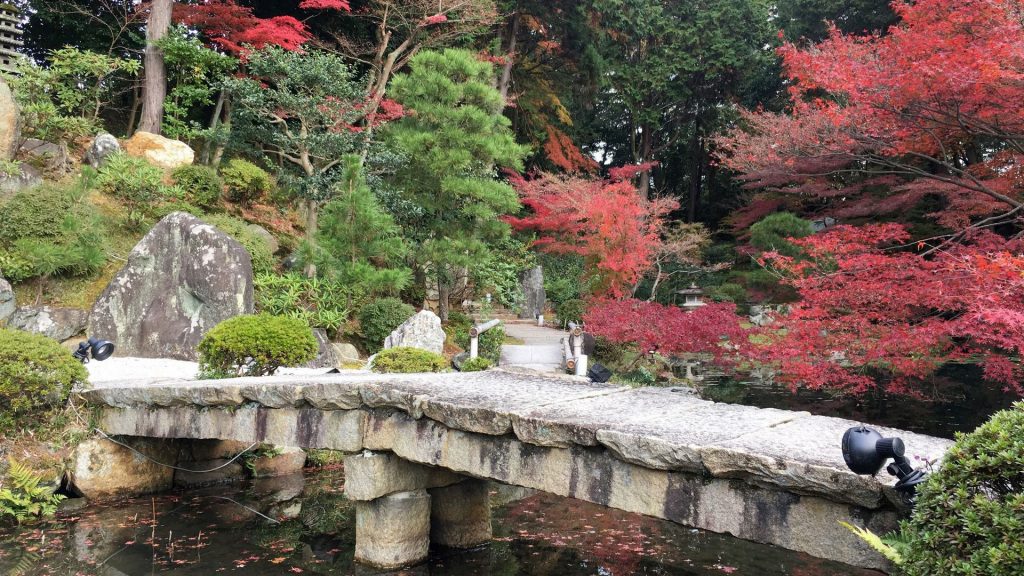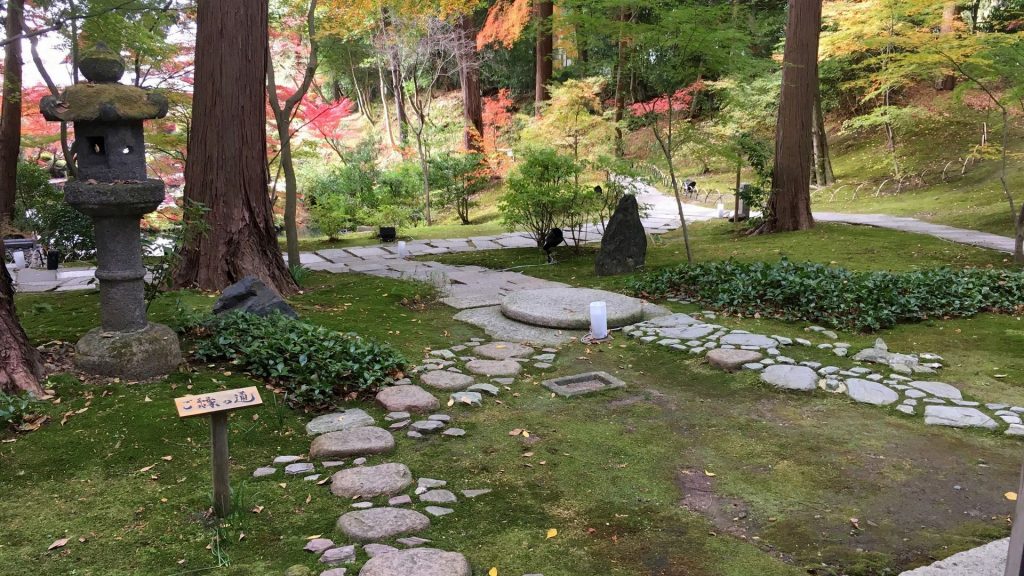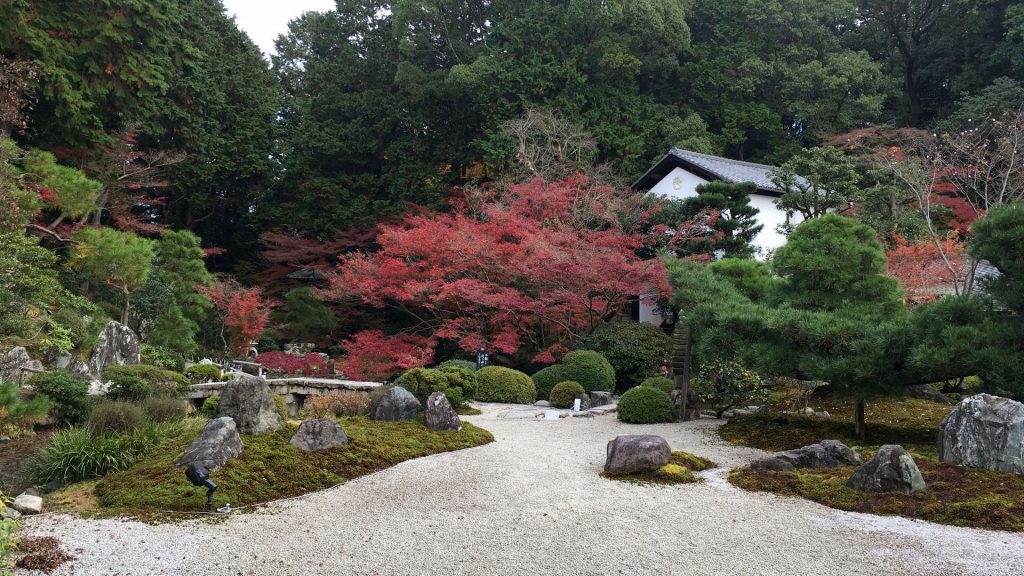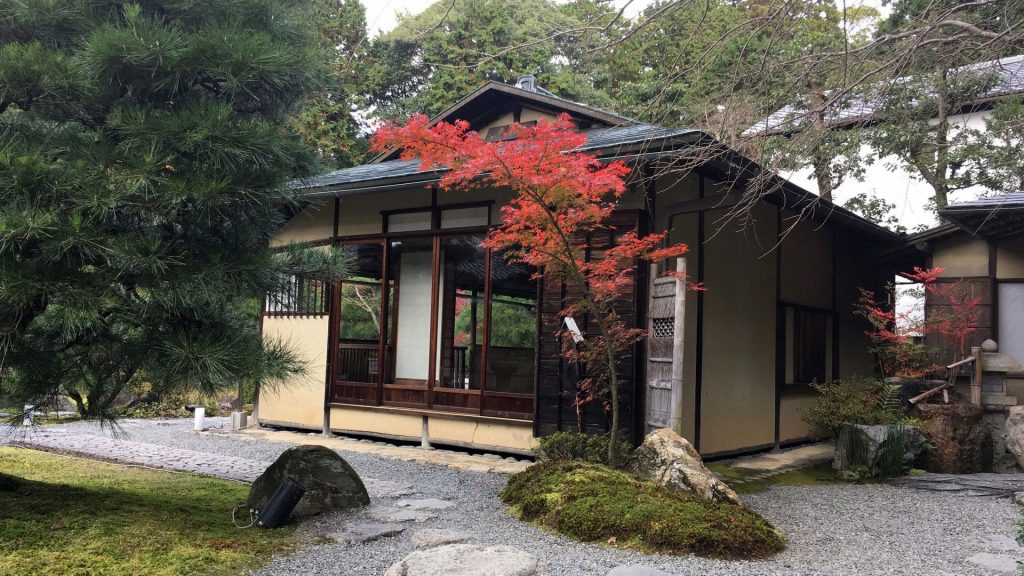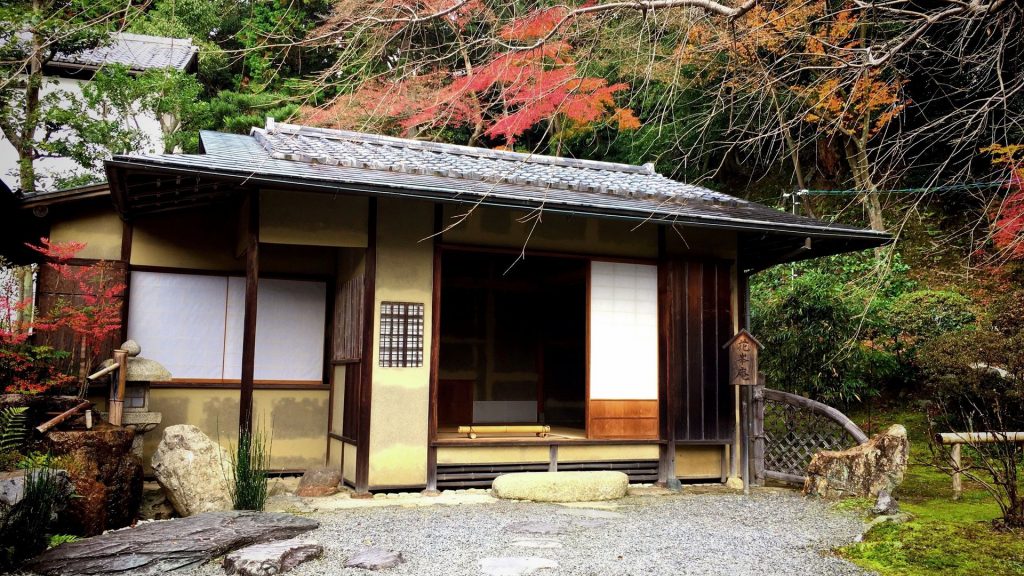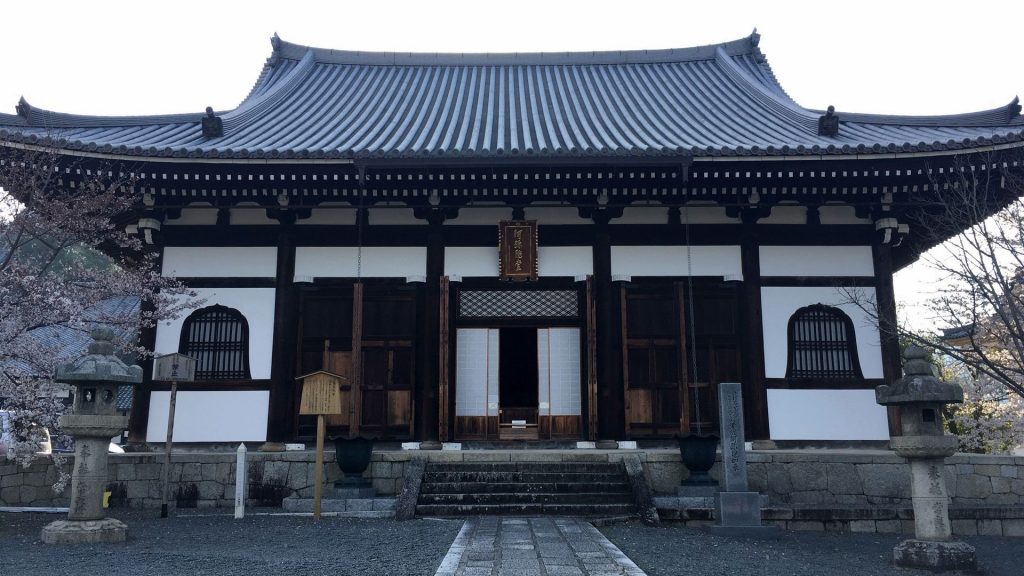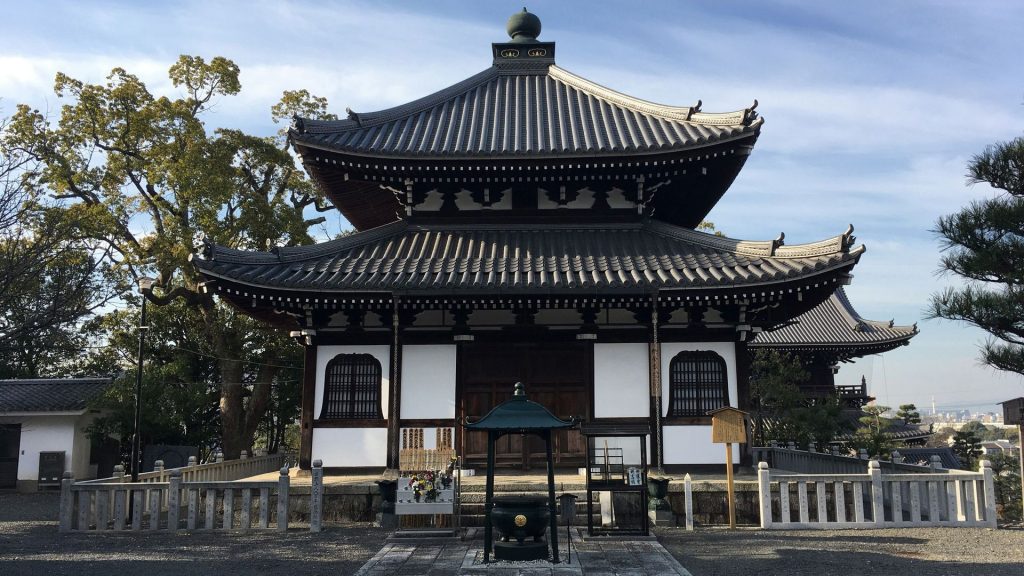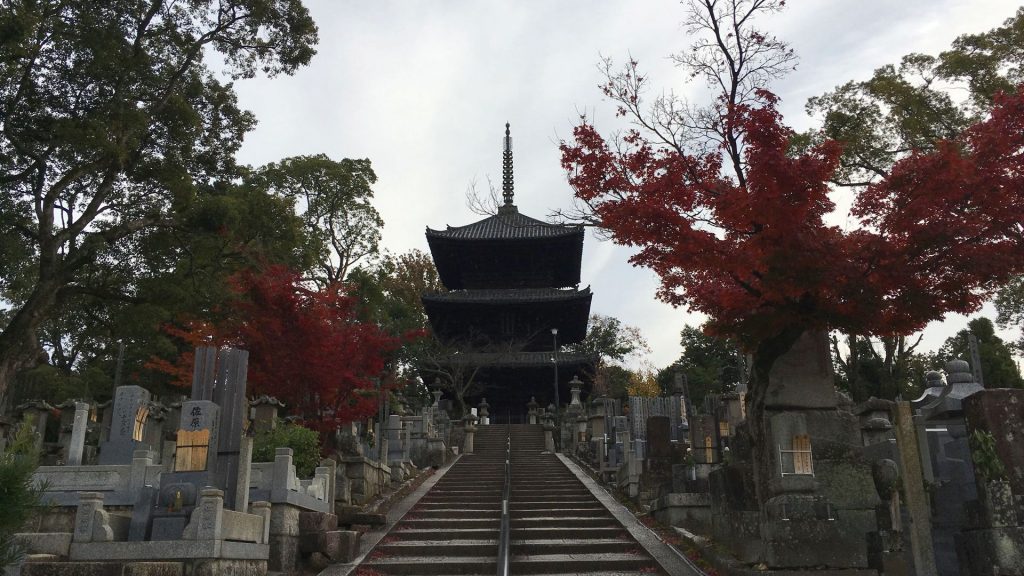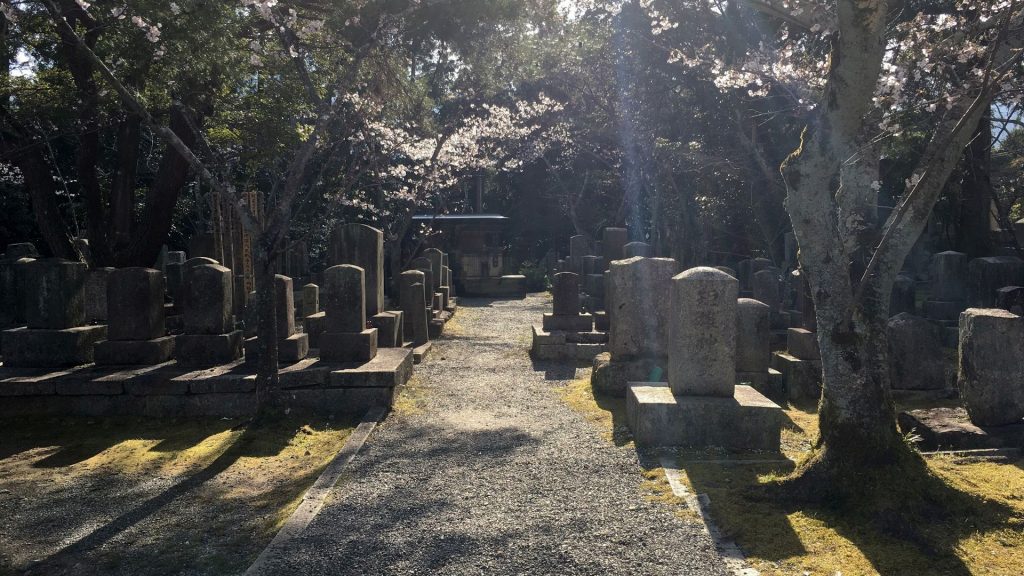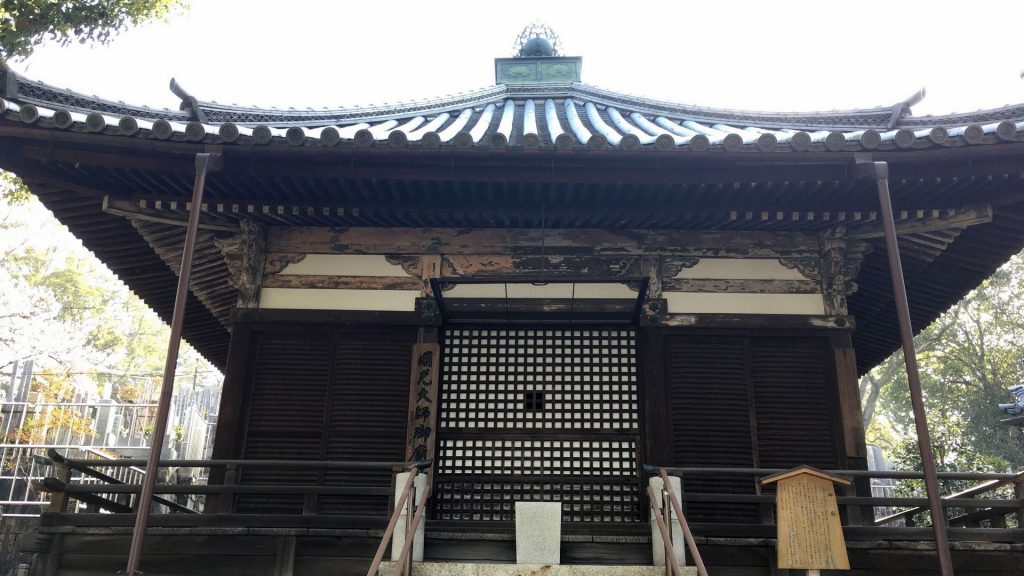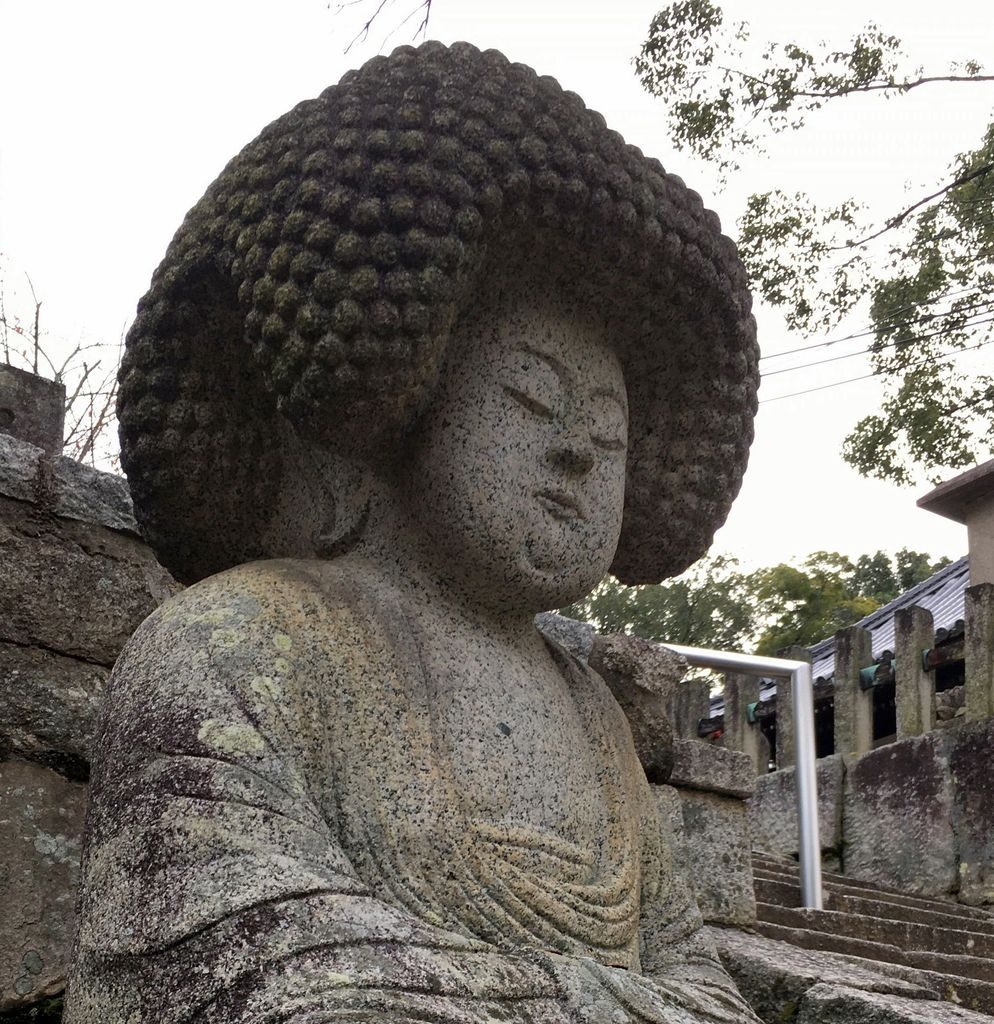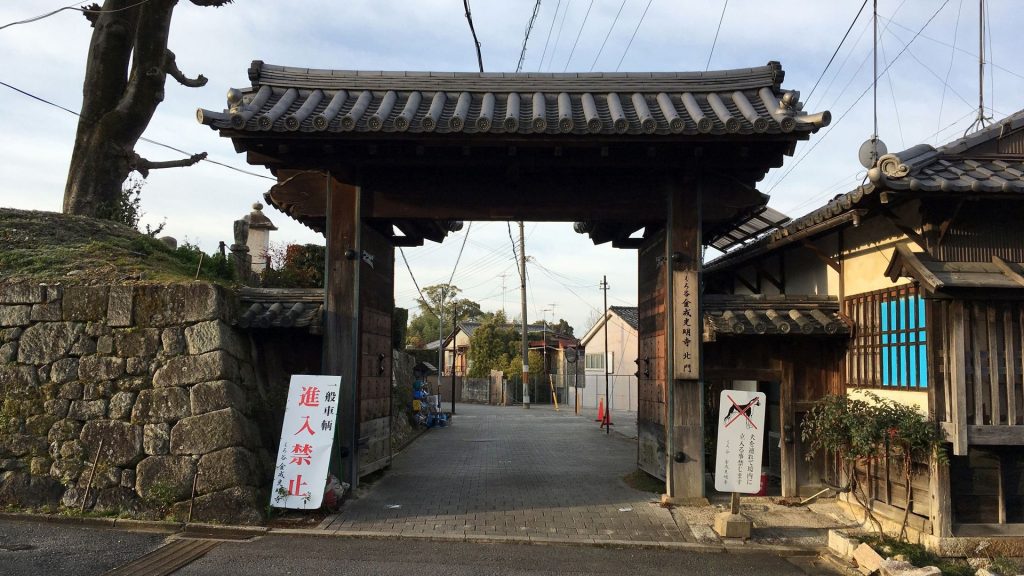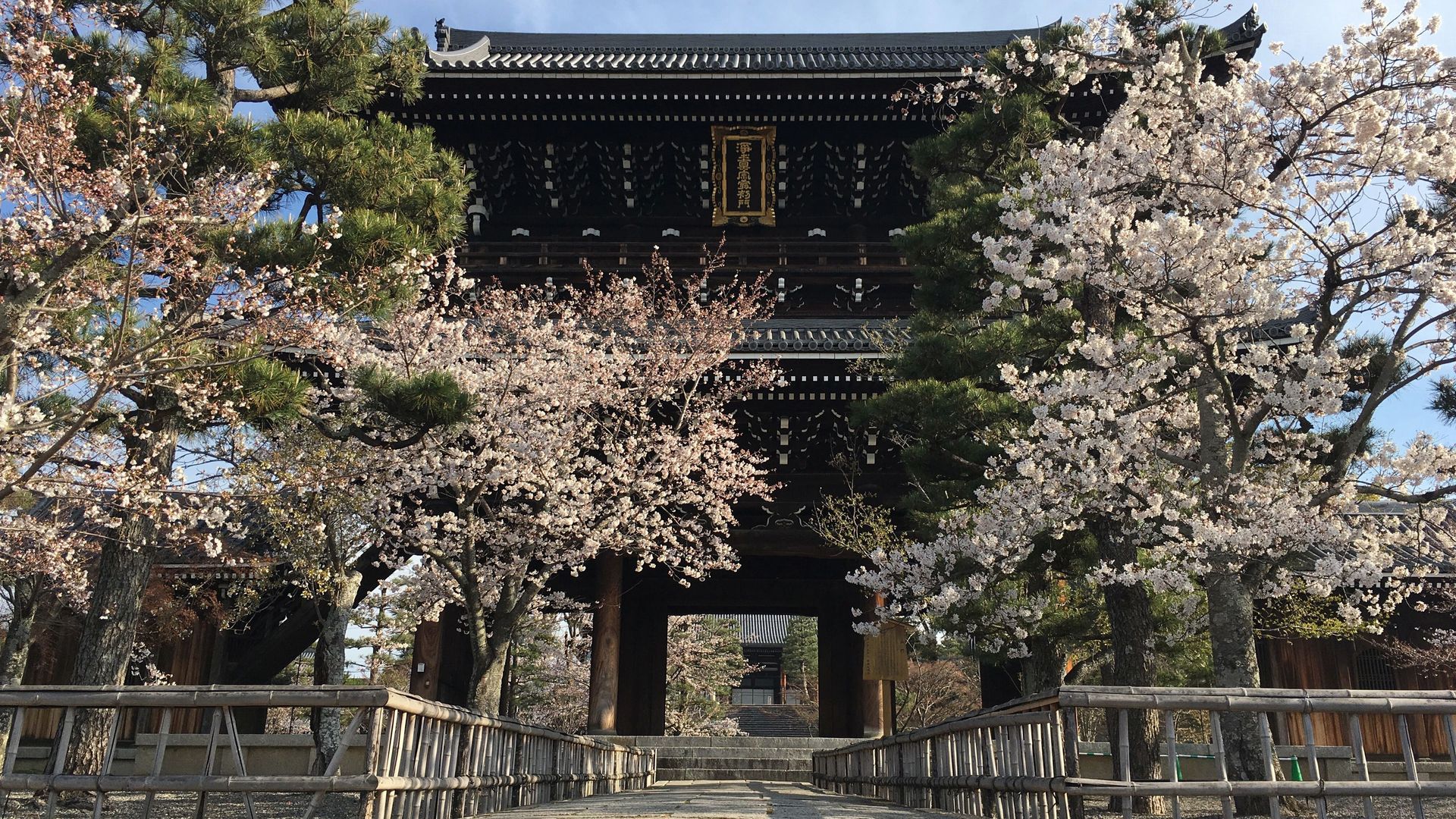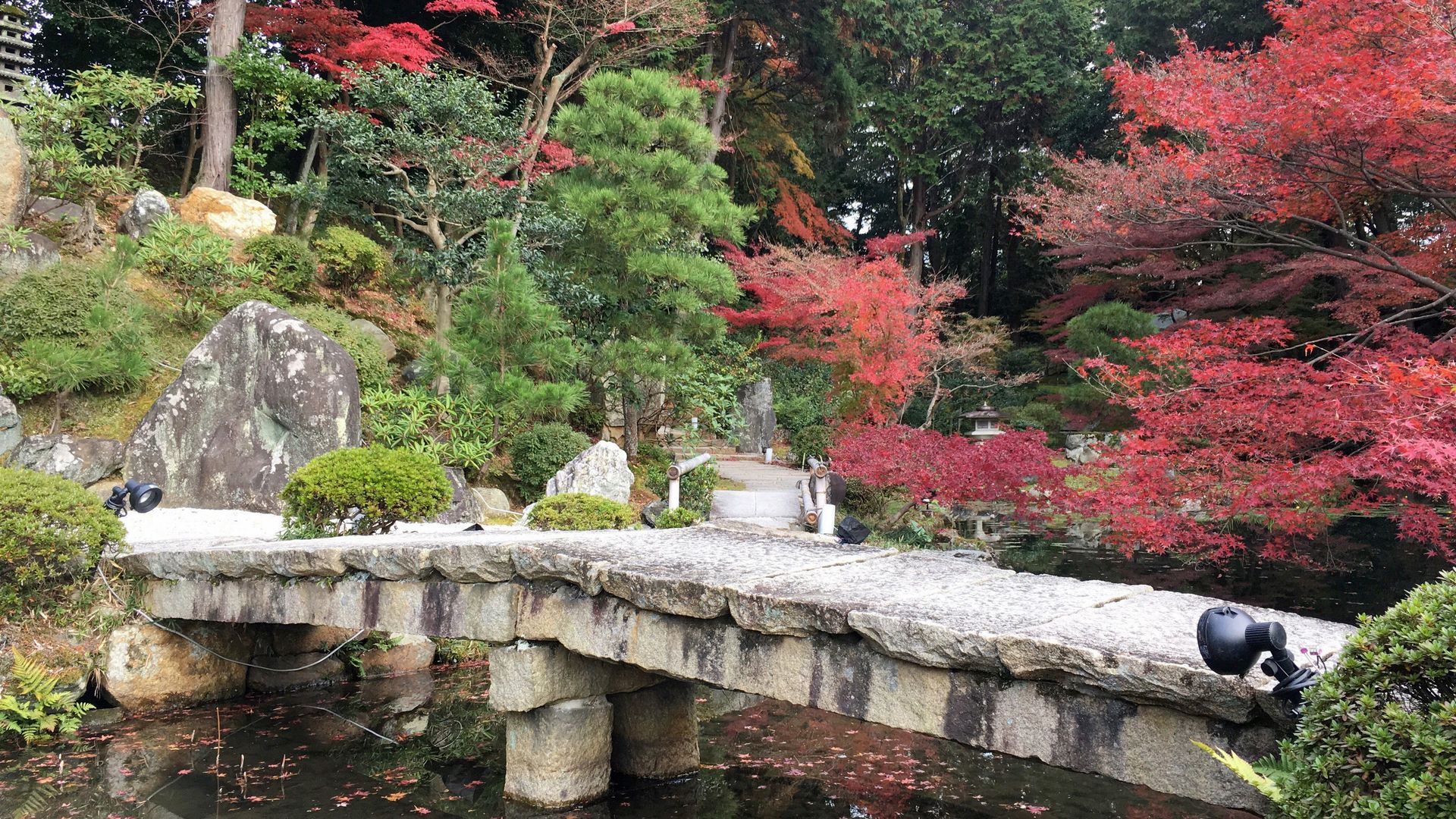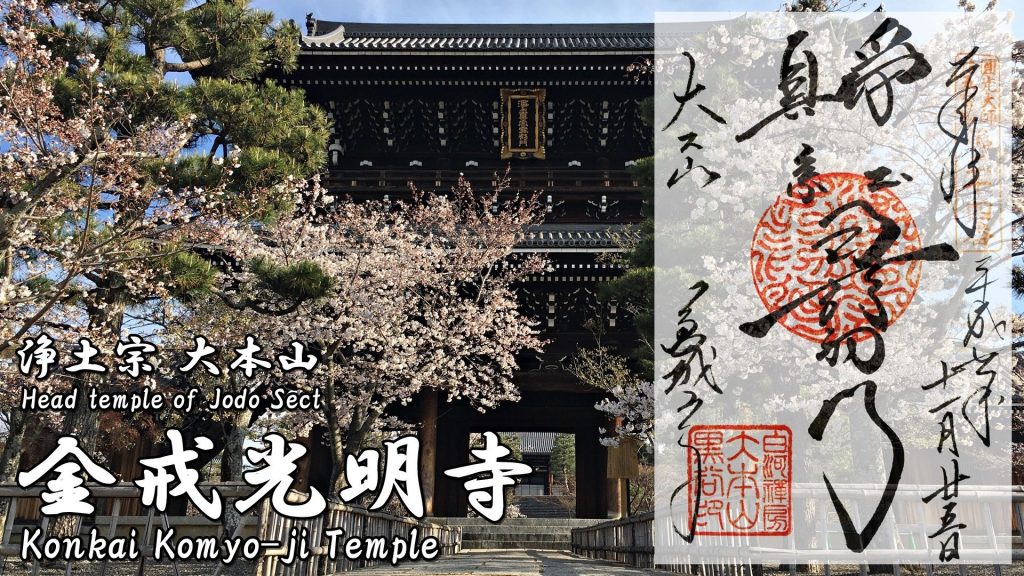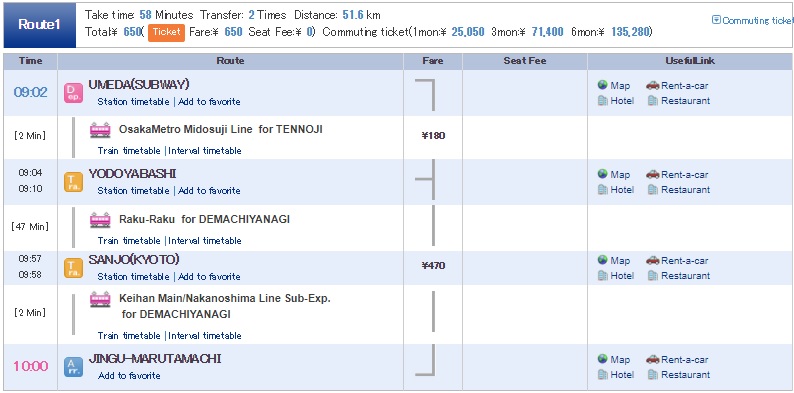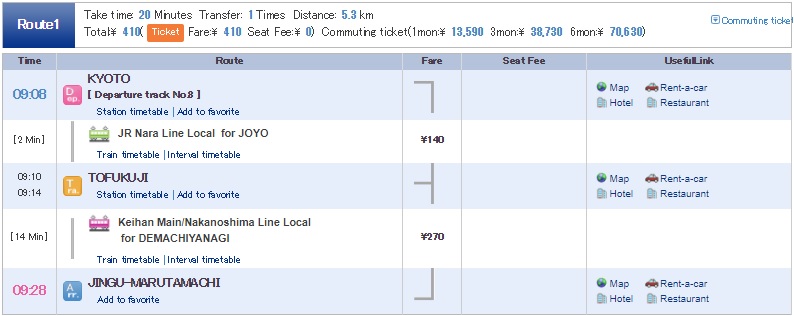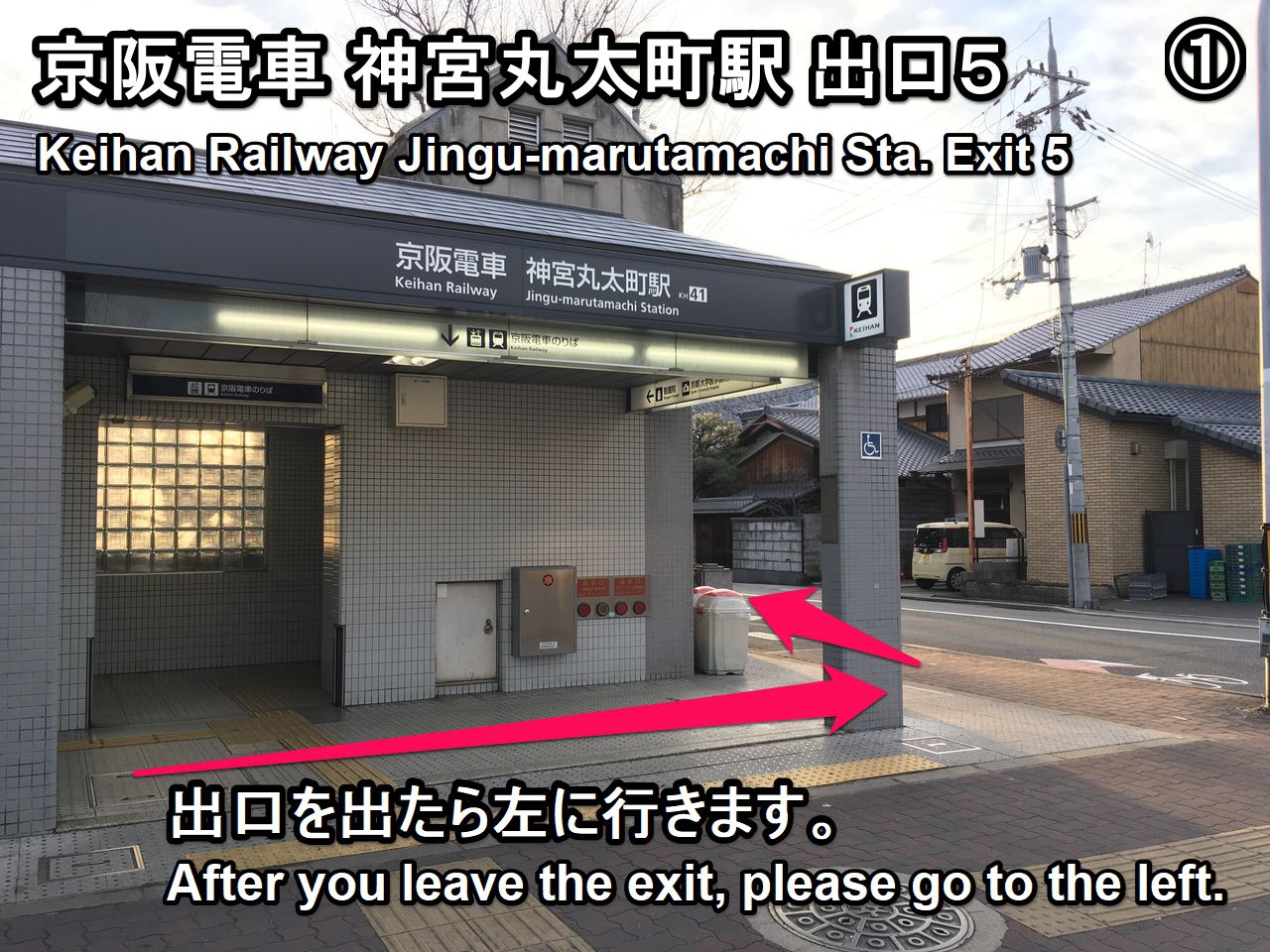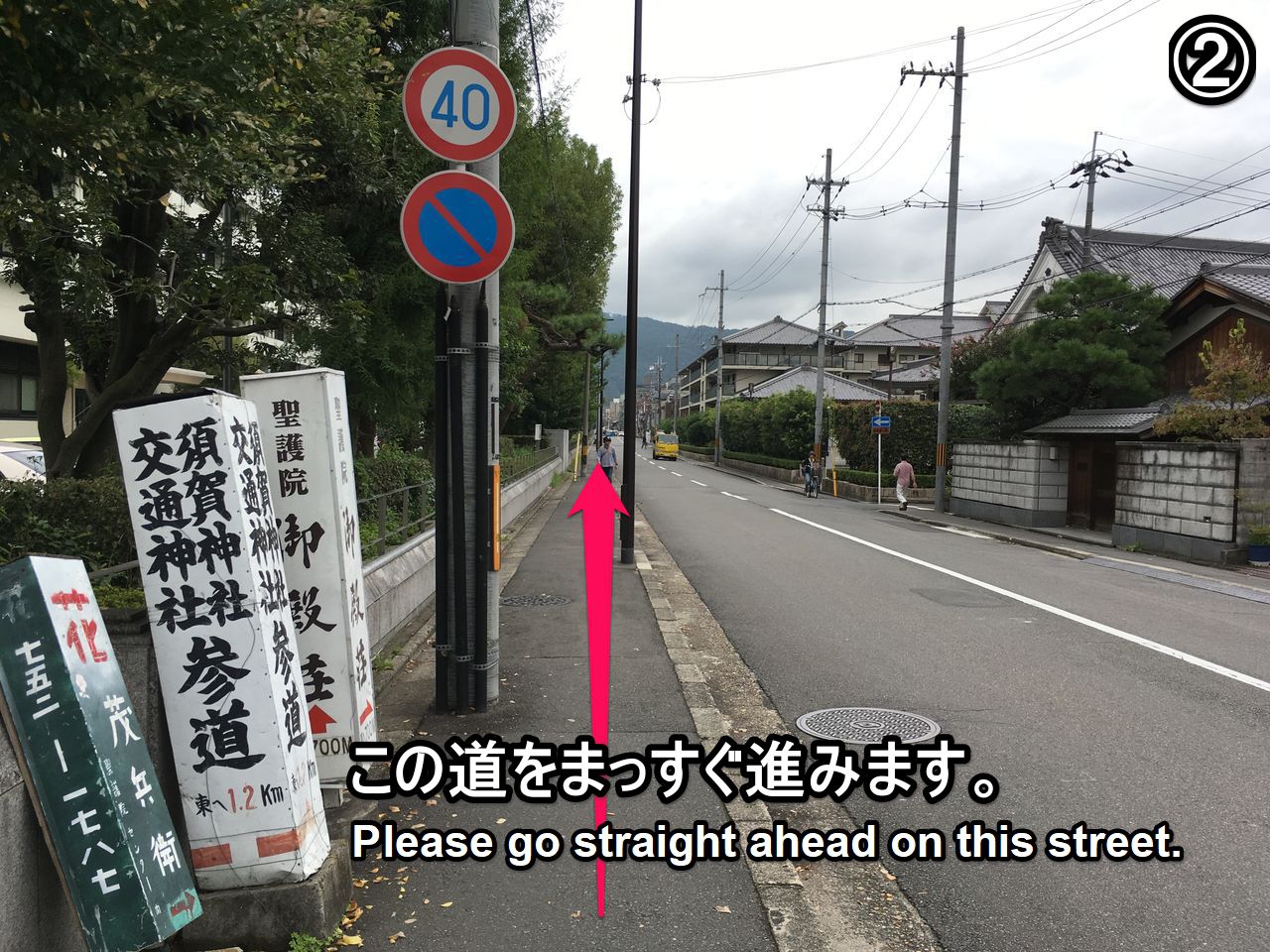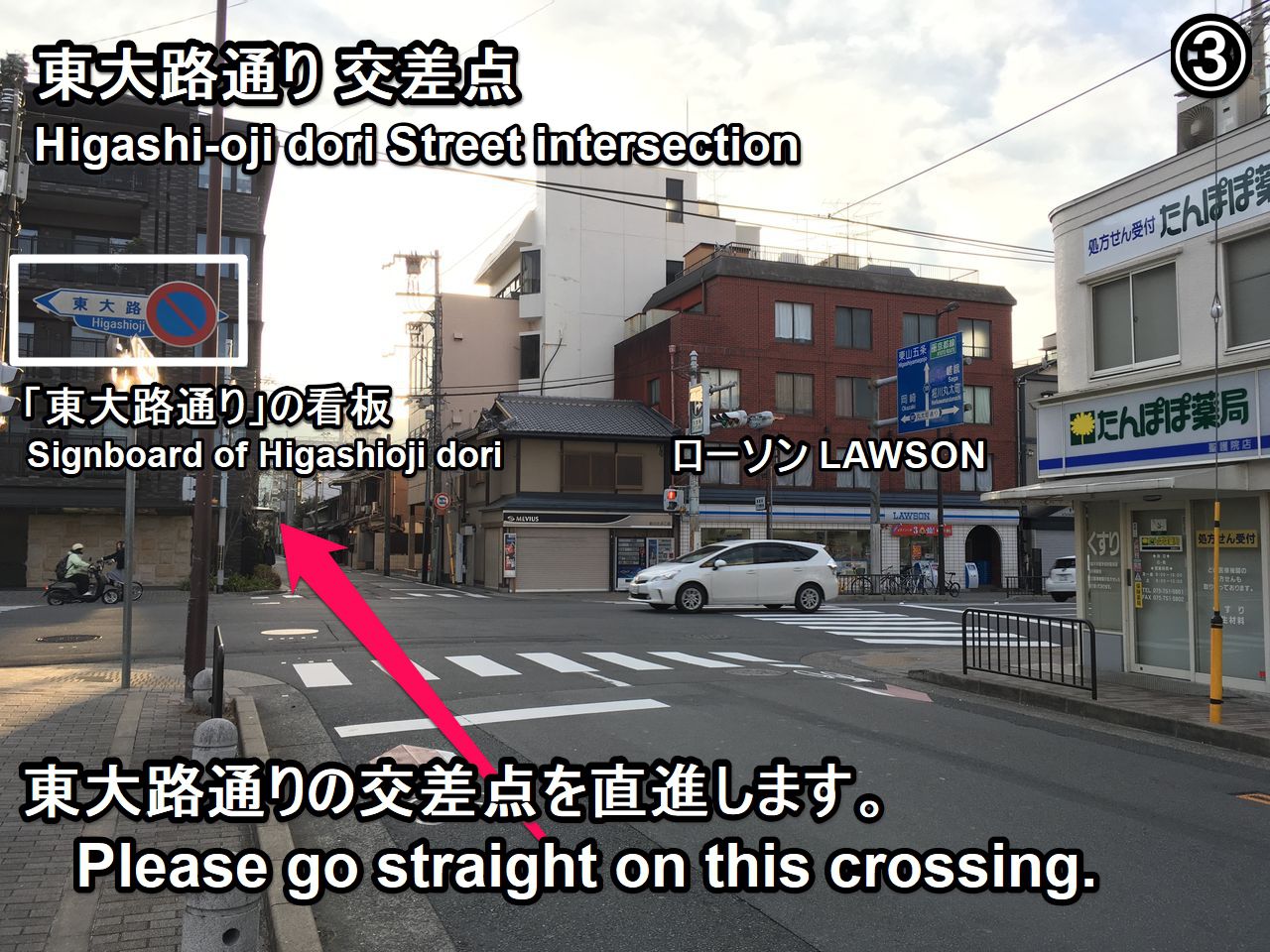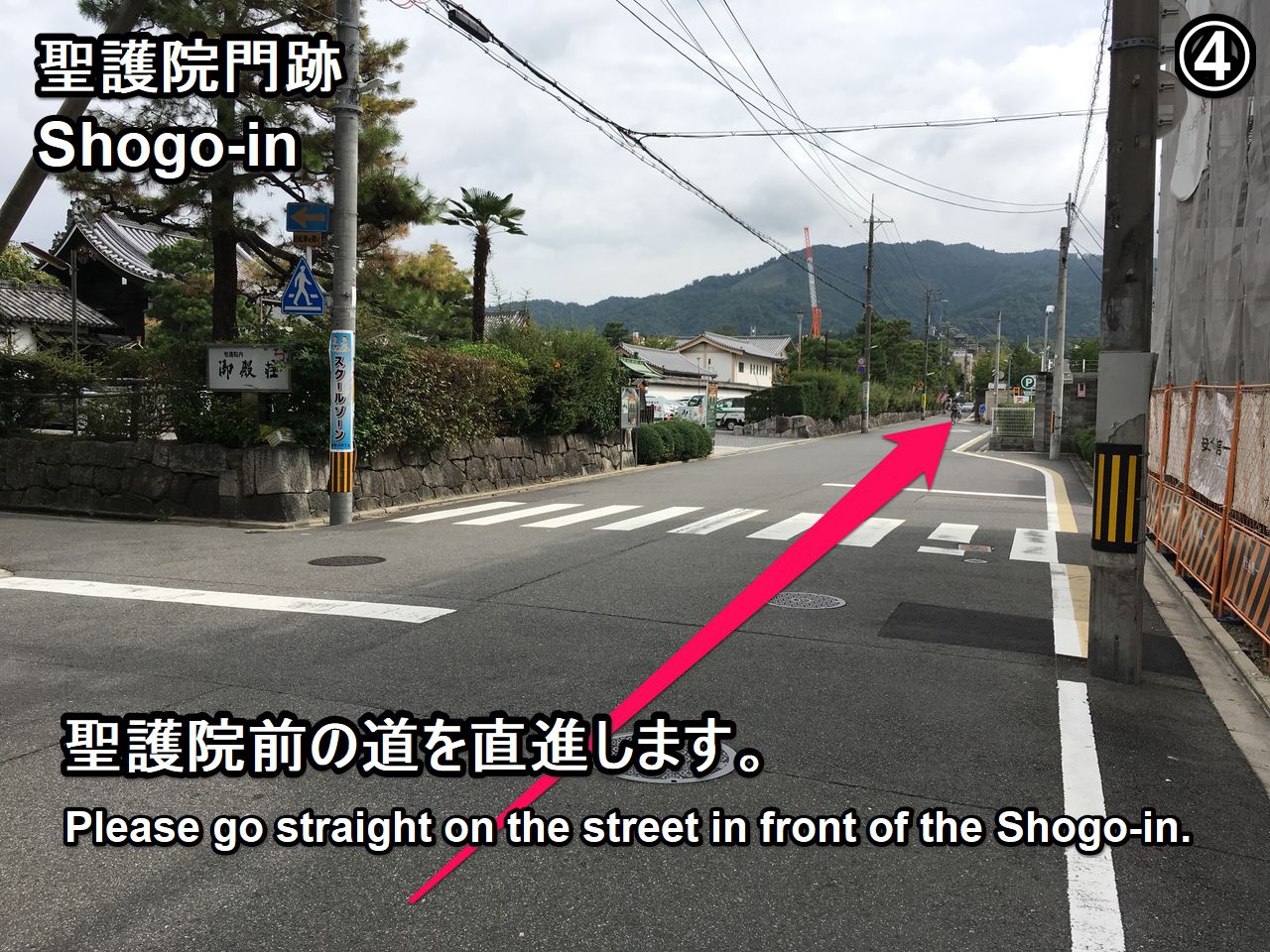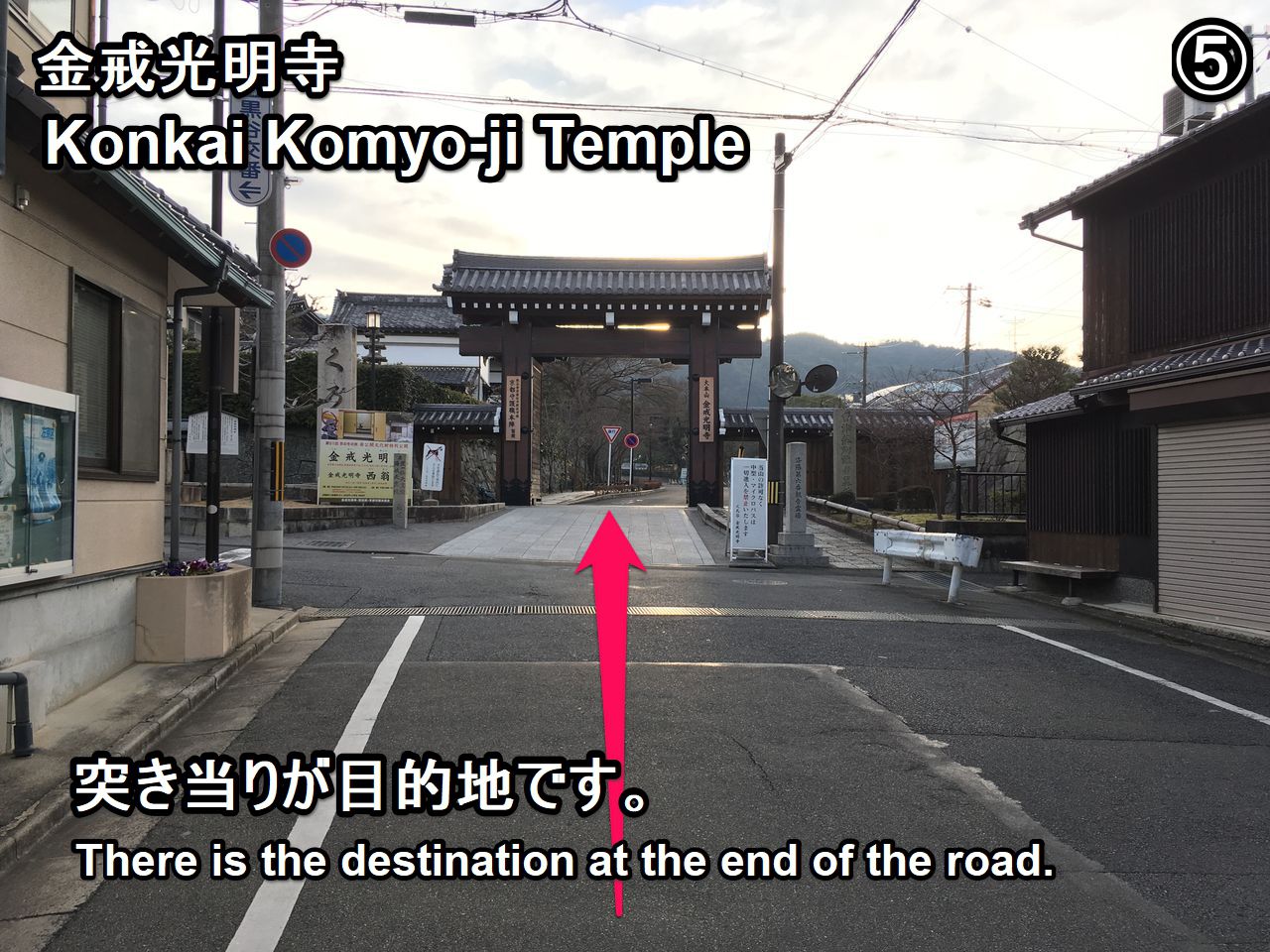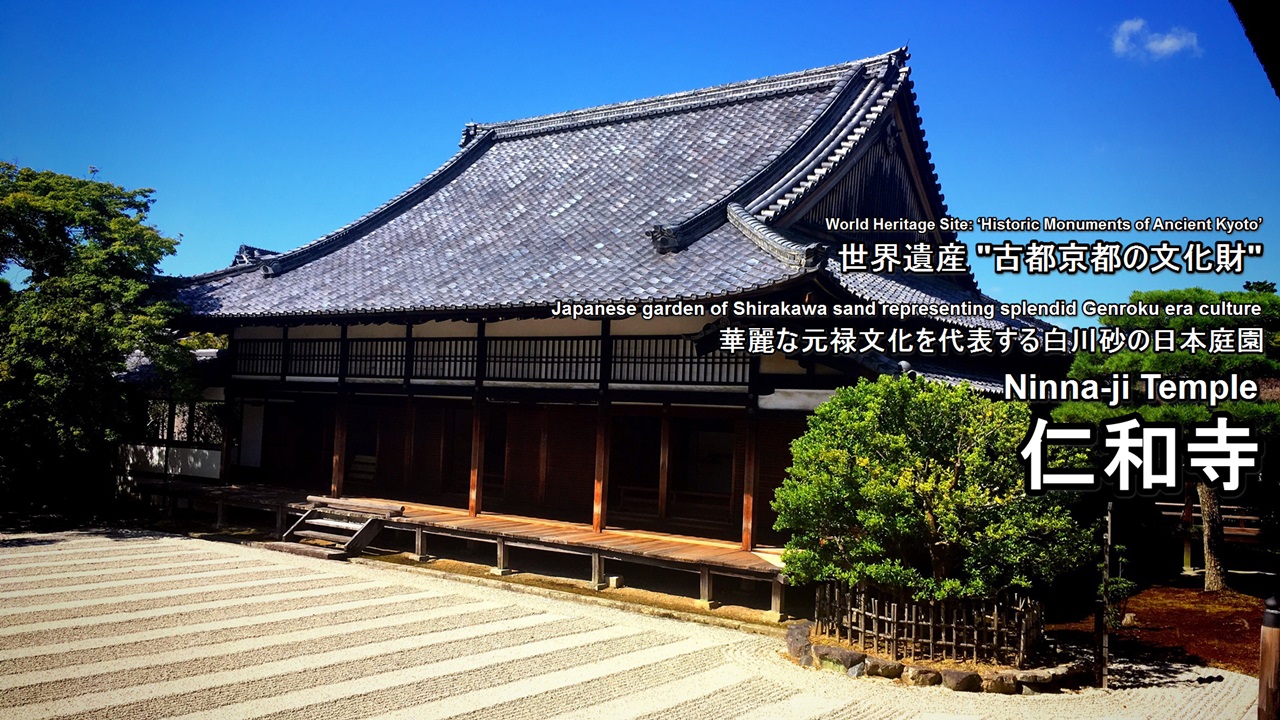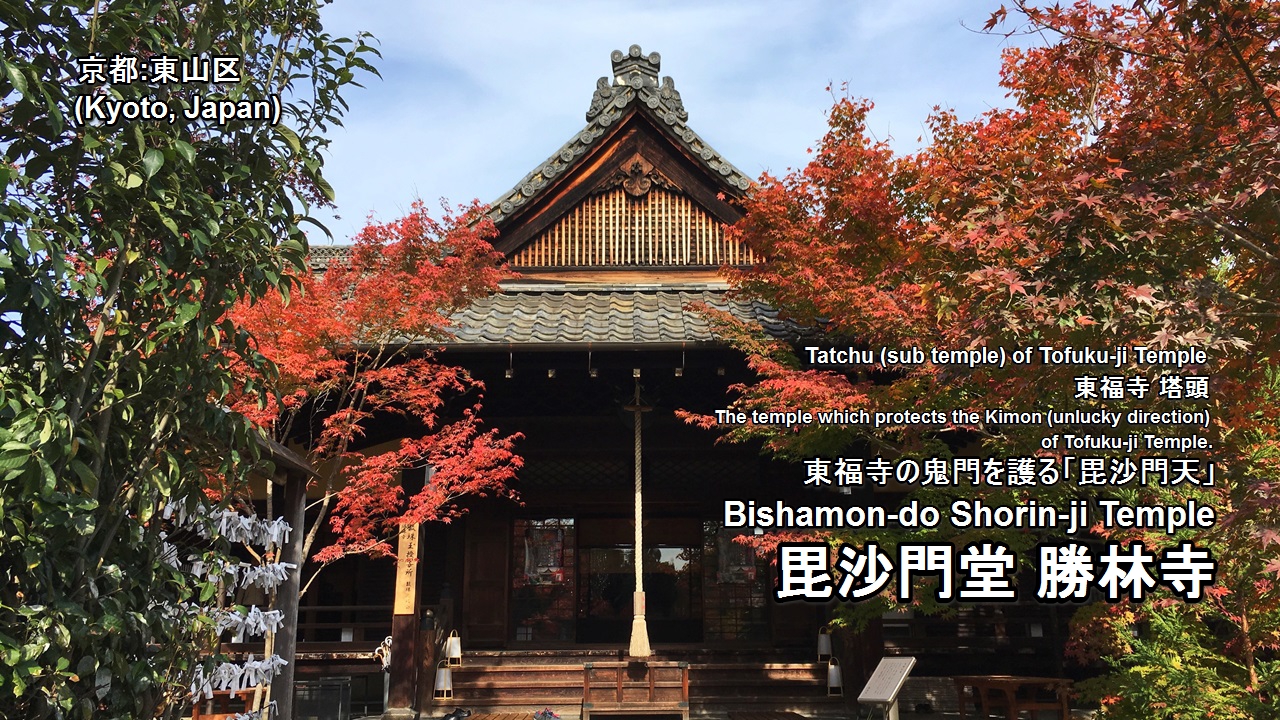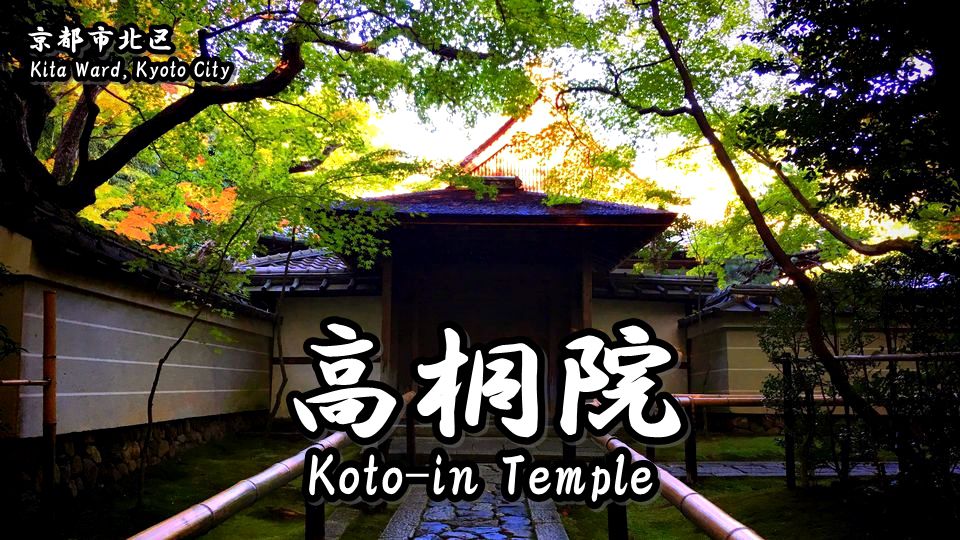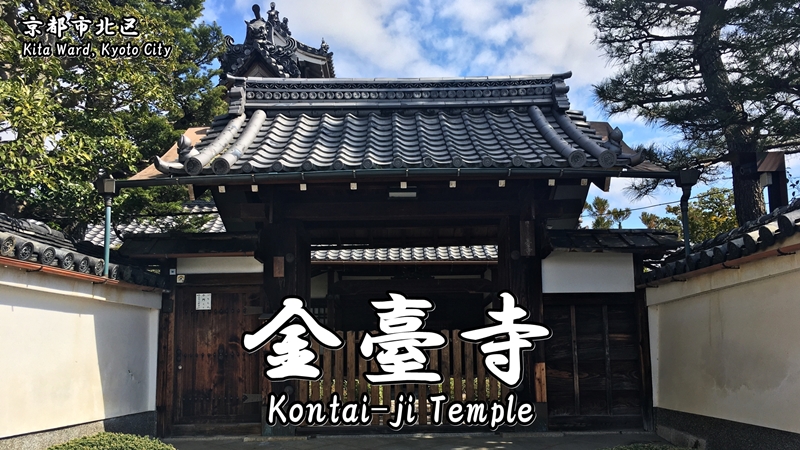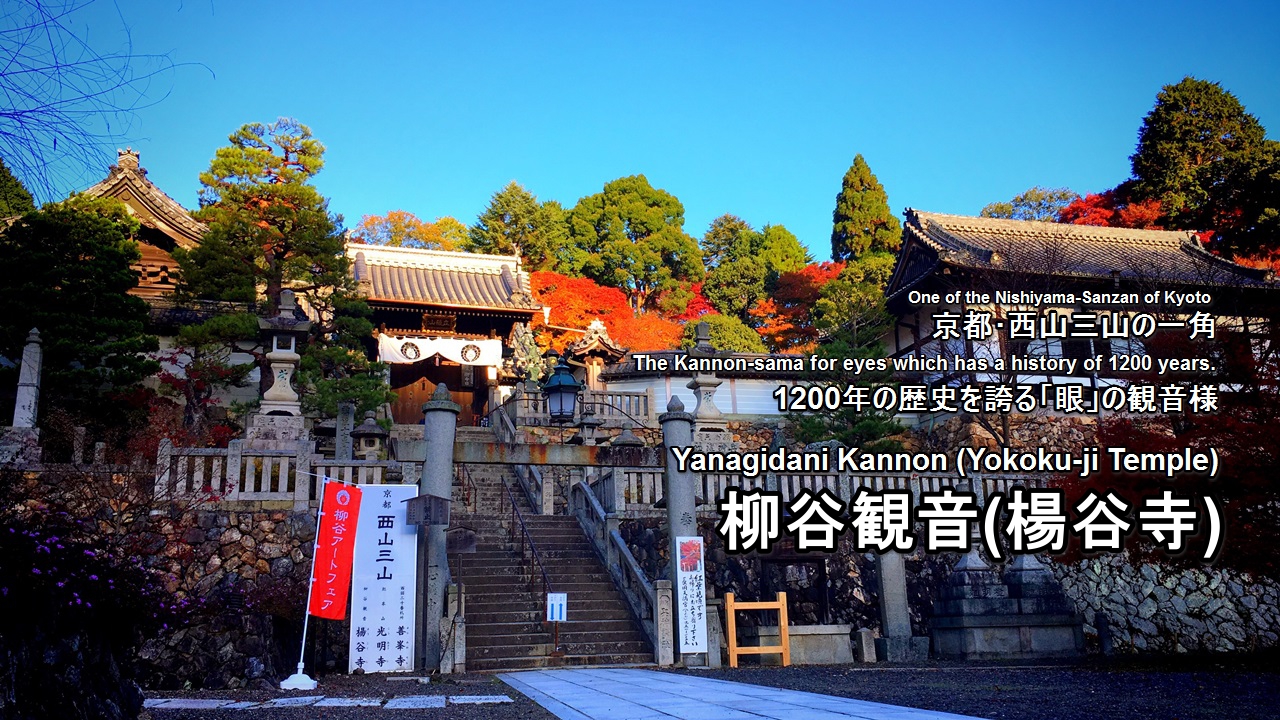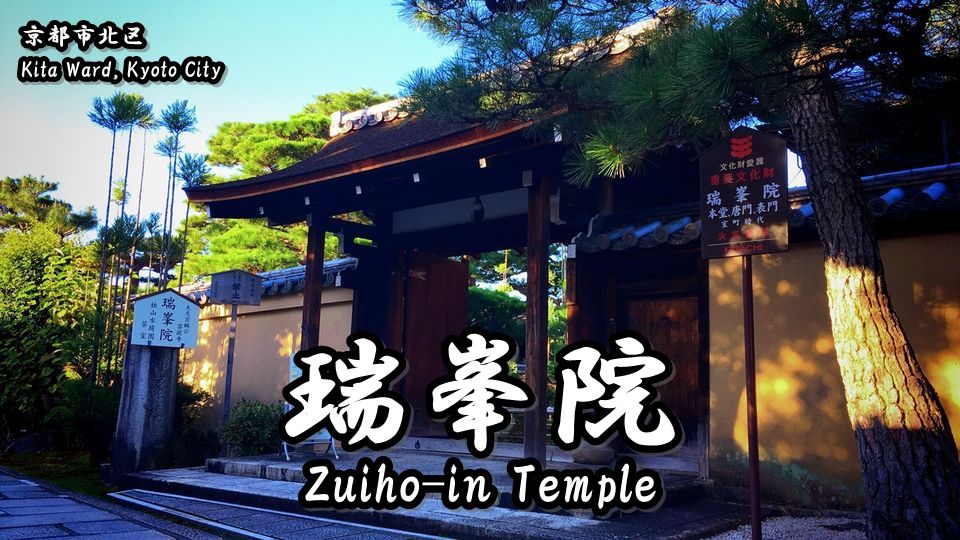Konkai Komyo-ji Temple is a head temple of Jodo Sect located in Kurodani-cho, Sakyo Ward, Kyoto City.
It is one of prestigious daihonzan (head temple of a Buddhist sect) of Jodo Sect along with Chion-in Temple, and is usually called “Kurotani-san.”
Its principal image is Amida Nyorai (Amitabha Tathagata).
History of Konkai Komyo-ji
Let’s study the history of this temple with me.
I think that we can enjoy sightseeing of this temple more by learning the history of it. XD
This temple was founded in 1175 by Honen (法然) who was the sect founder of Jodo Sect.
At the time of the foundation, It was called ‘Shiunzan Komyo-ji Temple.’
During the Nanboku-cho period, Emperor Gokogon gave the name ‘Konkai (金戒)’ to this temple.
So this temple came to be called Konkai Komyo-ji.
It is known as a famous place of spring cherry blossomes and autumn colored leaves.
Information for visitors
San-mon, Miei-do hall and temple garden are only open to the public on specific days in spring and autumn.
(The public are permitted to visit the precincts.)
■Special admission information (Japanese text only)
Below is the information on the Special admission in autumn of 2018.
■Information
Address:121, Kurodanicho, Kyoto Shi Sakyo Ku, Kyoto Fu, 606-8331, Japan
Phone:+81-75-771-2204
Foundation:1175
Founder:Honen (法然)
Sect:Jodo Sect (浄土宗)
Principal image:Amida Nyorai (阿弥陀如来)
■Open
9:00 ~ 16:00
■Admission fee
| Adults | Children | |
| Miei-do/O-Hojo/Garden ticket ① | 600 yen | 300 yen |
| Sanmon ticket ② | 800 yen | 400 yen |
| Discount ticket ①+② | 1200 yen | 600 yen |
■Other Informations
・Photography and video recording are prohibited inside the building of this temple.
・The worship method of a Shinto shrine and a Buddhist temple, please refer to the following article.
Next, Let’s go to see the highlights of this temple with me!
Highlights of Konkai Komyo-ji
- 高麗門:Korai-mon Gate
- 山門*:San-mon Gate*
- 御影堂*:Miei-do Hall*
- 大方丈*:O-Hojo Hall*
- 玄関:Genkan
- 唐門*:Kara-mon gate*
- 方丈北庭*:Hojo-kitaniwa Garden*
- ご縁の庭*:Goen-no-niwa Garden*
- 紫雲の庭*:Shiun-no-niwa Garden*
- 紫雲亭*:Shiun-tei (Tea room)*
- 花峯庵*:Kaho-an (Tea room)*
- 阿弥陀堂:Amida-do Hall
- 納骨堂:Nokotsu-do Hall
- 三重塔【重要文化財】:Three-storied pagoda【Important cultural property】
- 会津墓地:Aizu graveyard
- 円光大師御廟所:Mausoleum of Enko-daishi
- 五劫思惟阿弥陀仏:Gokoshiyui Amidabutsu
- 北門:Kita-mon (north) Gate
This mark 「*」 is a pay area.
高麗門:Korai-mon Gate
Korai-mon Gate was built in 1860 of the late Edo period and was rebuilt in 2015.
山門*:San-mon Gate*
San-mon gate was rebuilt in 1860 of the late Edo period. (cultural property designated by Kyoto Prefecture)
御影堂*:Miei-do Hall*
Miei-do Hall was rebuilt in 1944 of the Showa period. (Registered Tangible Cultural Properties)
Honen Shonin (法然上人), Kibi Kannon (吉備観音) and Nakayama Monju (中山文殊) are worshiped in the Miei-do.
大方丈*:O-Hojo Hall*
O-Hojo Hall was rebuilt in 1944 of the Showa period. (Registered Tangible Cultural Properties)
玄関:Genkan
Genkan (Entrance Hall) (Registered Tangible Cultural Properties)
唐門*:Kara-mon gate*
Kara-mon Gate was rebuilt in 1936 of the Showa period. (Registered Tangible Cultural Properties)
方丈北庭*:Hojo-kitaniwa Garden*
Japanese garden in the north side of the O-Hojo Hall called ‘Hojo North Garden.’
It is a chisen-kaiyushiki garden, Japanese style garden with a path around a central pond and spring.
ご縁の庭*:Goen-no-niwa Garden*
Japanese garden in the north side of the precincts called ‘Goen-no-niwa.’
紫雲の庭*:Shiun-no-niwa Garden*
Japanese garden in the east side of the O-Hojo Hall called ‘Shiun-no-niwa.’
紫雲亭*:Shiun-tei (Tea room)*
花峯庵*:Kaho-an (Tea room)*
阿弥陀堂:Amida-do Hall
Amida-do Hall was built in 1612 of the Edo period. (cultural property designated by Kyoto Prefecture)
Amida Nyorai (Amitabha Tathagata) of the principal image of this temple is enshrined in this building.
納骨堂:Nokotsu-do Hall
Nokotsu-do Hall was built in 1689 of the Edo period.
Amida Nyorai (Amitabha Tathagata) made of bones is enshrined in this building.
三重塔【重要文化財】:Three-storied pagoda【Important cultural property】
Three-storied pagoda of this temple was built in 1633 of the Edo period. (important cultural property)
会津墓地:Aizu graveyard
It is the graveyard for Aizu clan’s samurai who kept the peace and order of Kyoto in the Edo period.
円光大師御廟所:Mausoleum of Enko-daishi
Mausoleum of Enko-daishi was rebuilt in 1676 of the Edo period.
五劫思惟阿弥陀仏:Gokoshiyui Amidabutsu
This is a very rare Amitabha statue which has a large head.
So this statue is also called ‘Afro Hair Amitabha’.
北門:Kita-mon (north) Gate
Cherry blossoms of Konkai Komyo-ji
The best season of cheryy blossoms are early April.
Autumn leaves of Konkai Komyo-ji
The best season of autumn leaves are late November to early December.
Video of Konkai Komyo-ji
Photos of Konkai Komyo-ji
Goshuin (Red ink stamps) of Konkai Komyo-ji
Konkai Komyo-ji’s red ink stamp, ‘Jodoshinshu Saishomon (浄土真宗最初門)’.
How to get to Konkai Komyo-ji
The nearest station is Keihan Jingu-marutamachi Sta.
We can also go by bus from Kyoto Sta. or Hankyu Kawaramachi Sta.
From Osaka Umeda Sta. to Jingu Marutamachi Sta. (by train)
Timetable and Route Search (train)
1.Get on the Osaka Metro Midosuji Line from Umeda Station to Yodoyabashi Station.
2.Change to the Keihan Railway at Yodoyabashi Station.
3.Get on the Keihan Railway from Yodoyabashi Station to Jingu Marutamachi Station.
From Namba Sta. to Jingu Marutamachi Sta. (by train)
Timetable and Route Search (train)
1.Get on the Osaka Metro Midosuji Line from Namba Station to Yodoyabashi Station.
2.Change to the Keihan Railway at Yodoyabashi Station.
3.Get on the Keihan Railway from Yodoyabashi Station to Jingu Marutamachi Station.
From Kyoto Sta. to Jingu Marutamachi Sta. (by train)
Timetable and Route Search (train)
1.Get on the JR Nara Line from Kyoto Station to Tofukuji Station.
2.Change to the Keihan Railway at Tofukuji Station.
3.Get on the Keihan Railway from Tofukuji Station to Jingu Marutamachi Station.
From Jingu Marutamachi Station (on foot)
About 1.2 km (25 minutes)
Get on a bus from Kyoto Station
Timetable and Route Search (bus)
Please get on a bus No.100 [Exp] (bus stop D1).
[Timetable]Kyoto City Bus No. 100【Exp】
Bus company:Kyoto City Bus
Routes/Destination:No. 100(Exp) [Bound for Ginkakuji Temple Via Kiyomizu-dera Temple]
Boarding bus stop:Kyoto Sta. [D1]
Alighting bus stop:Okazaki-michi
Bus fare:230 yen
Time required:About 29 min
Get on a bus from Hankyu Kawaramachi Station
Timetable and Route Search (bus)
Please get on a bus No.5 or No.32 (bus stop H).
[Timetable]Kyoto City Bus No. 5
Bus company:Kyoto City Bus
Routes/Destination:No. 5[Bound for Ginkakuji Temple Via Heian-jingu Shrine]
Boarding bus stop:Shijo Kawaramachi [H]
Alighting bus stop:Higashitennocho
Bus fare:230 yen
Time required:About 20 min
[Timetable]Kyoto City Bus No. 32
Bus company:Kyoto City Bus
Routes/Destination:No. 32[Bound for Ginkakuji Temple Via Heian-jingu Shrine]
Boarding bus stop:Shijo Kawaramachi [H]
Alighting bus stop:Okazaki-michi
Bus fare:230 yen
Time required:About 15 min
Take a taxi
From Kyoto Station:2300 yen ~ (about 20 minutes)
From Gion-Shijo Station:1200 yen ~ (about 10 minutes)
・Let’s show a taxi driver the following phrase.
・If you want to call a taxi, let’s show the following phrase.
[Phone number of taxi dispatch : Around the Kyoto Station]*Japanese text only.
Hotel search & reservation
How did you like it?
Have a nice trip! XD

